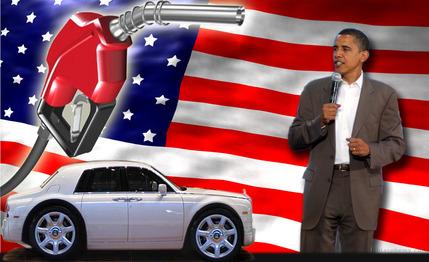Out of the blue, this appears to me to be pretty big news. No one seems to have seen this important development coming. We’ll have to watch and see how it plays out and the impact it will have on fuel economy and the industry. It seems like it could be a major driver (pun intended) of decision making at the highest level. The key will be if NTHSA is correct or not when they say:
“NHTSA spokesman said “automakers are already proving they can meet the administration’s fuel efficiency and [greenhouse gas] reduction standards,” adding that the multiyear program gives automakers time and “regulatory certainty” to plan for compliance.”
This comes right at a time when the US and World auto industry is beginning to cool off and plateau. I think the growth spurt is coming to an end as the pent up demand for vehicles after the Great Recession peters out. Major consequences for the industry ahead.
Industry blindsided as CAFE fines jump
Higher fines for missing mpg targets could upend compliance strategies
July 16, 2016
Ryan Beene
WASHINGTON — Automakers worried about the cost of meeting fuel economy targets are waking up to a startling new reality: The cost of not meeting them is about to get a lot higher.
Next month, the National Highway Traffic Safety Administration will more than double the fine it assesses automakers that fall short of their annual corporate average fuel economy standards. For many automakers, that increase could upend the economics of their fuel economy compliance strategies, laid out years ago, and insiders worry that automakers’ exposure to fines for noncompliance will only grow as the CAFE requirements grow tougher each year.
What’s more, NHTSA confirmed to Automotive News that the steeper penalties will apply to 2015 model year vehicles for which it has yet to issue compliance reports. That means automakers at risk of missing their targets still don’t know how much more the increased fines may have already cost them.
The Alliance of Automobile Manufacturers blasted what it called a “draconian” increase, saying it will make it harder for automakers to make progress toward the Obama administration’s call for a fleetwide average of 54.5 mpg by the 2025 model year.
The outliers
Penalties paid by auto companies over the 2010-14 model years for missing fuel economy targets
Total fines
Jaguar Land Rover $46.2 million
Daimler $28.2 million
Volvo Cars $17.4 million
Porsche $4.8 million
Fiat $3.6 million
Source: NHTSA
The change also risks upsetting the fragile consensus between automakers and regulators as both sides dive into the key midterm evaluation of the administration’s “national program” of greenhouse gas and fuel economy rules.
“The most disturbing thing about it is that essentially no notice was given,” said one auto executive with responsibility for fuel economy strategy. “You make your regulatory plans based on a certain set of assumptions. To have it change suddenly without notice and without the ability to respond is really troubling.”
NHTSA has assessed an average of $20 million in fines industrywide each model year since 2010.
The latest increase, disclosed in a July 5 Federal Register notice about the rule, was prompted by a law enacted last year directing all federal agencies to update their civil penalties to maintain their effect as a deterrent and keep up with inflation.
For NHTSA, that meant raising the rate used for calculating CAFE penalties to $14 from $5.50. The $8.50 difference amounts to big bucks because it’s applied to each 0.1 mpg that an automaker falls short of its fuel economy target and then multiplied by the number of vehicles from that fleet sold in a given model year.
“This is a badly needed reform,” said Roland Hwang, transportation director at the Natural Resources Defense Council, who said the $5.50 rate made it cheaper for automakers to miss the target than to try to achieve it.
The fines are assessed to automakers that don’t make up for their shortfalls by buying offsetting credits, which are privately traded among automakers. Those credits could become more expensive now, the alliance warned.
Even before learning of the higher penalties, automakers were unnerved about the potential for increased exposure to fines.
On June 20, the alliance and the Association of Global Automakers petitioned the EPA and NHTSA to iron out discrepancies between the greenhouse gas and fuel economy programs that the auto groups say complicate the goal of creating one set of national standards for automakers.
“Some manufacturers are projecting that, despite being able to comply with the numerically more stringent greenhouse gas standards, they are likely to be in a position to pay CAFE fines,” the auto groups said in the petition.
In a statement, a NHTSA spokesman said “automakers are already proving they can meet the administration’s fuel efficiency and [greenhouse gas] reduction standards,” adding that the multiyear program gives automakers time and “regulatory certainty” to plan for compliance.
You can reach Ryan Beene at rbeene@crain.com — Follow Ryan on Twitter: http://www.twitter.com/RyanBeeneAN



